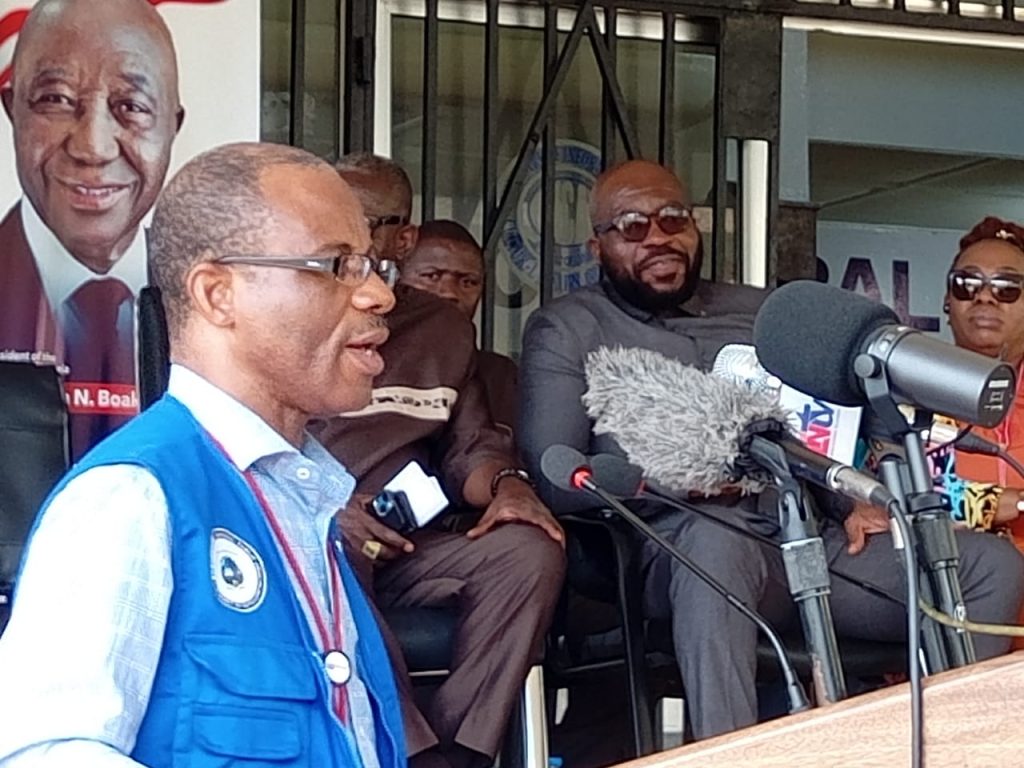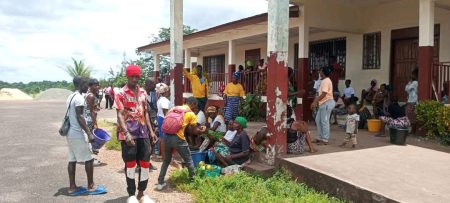The National Public Health Institute of Liberia (NPHIL) is actively managing an ongoing Mpox outbreak, with 25 active cases confirmed as of May 22, 2025. Since the beginning of 2024, Liberia has recorded a total of 102 laboratory-confirmed cases, with 77 individuals successfully recovering. The country experienced a period of no active cases by December 2024, but new infections emerged following the Christmas holidays, leading to sporadic cases in January 2025 and a slight increase in April 2025. NPHIL’s proactive approach, including public awareness campaigns, facilitated early detection and prompt response to these new cases, contributing to the successful management of the outbreak thus far.
The resurgence of Mpox cases prompted NPHIL to intensify its public awareness campaigns, utilizing media outlets and disseminating information in local dialects to reach a wider audience. This proactive approach encouraged citizens to seek medical attention, with individuals bringing their children for check-ups to rule out Mpox infection. The increased public awareness led to the identification of 12 suspected cases in one week, four of which were initially confirmed positive. Further surveillance revealed additional positive cases, raising the total number of active cases to 25.
The current outbreak, which began in 2024, was declared a public health emergency of national and regional concern by both the World Health Organization (WHO) and the Africa Centres for Disease Control and Prevention (Africa CDC). While this is not Liberia’s first encounter with Mpox, having previously managed cases between 2020 and 2021, the 2024 outbreak marked a renewed challenge. The first case of the 2024 outbreak was detected in Sanniquellie, Nimba County, prompting NPHIL to implement its comprehensive response strategy.
NPHIL’s response strategy is multi-faceted, focusing on proactive measures rather than reactive interventions. This includes widespread public awareness campaigns, diagnostic testing to differentiate Mpox from similar illnesses like chickenpox and cowpox, and case management based on severity. Mild cases are treated at home, while severe cases are referred to designated isolation centers, including the renovated Sky Base facility in Monrovia and others across the country. This tiered approach ensures appropriate care for all infected individuals while minimizing strain on healthcare facilities.
Collaboration with neighboring countries is also a key component of NPHIL’s response strategy. A recent visit to the border with Sierra Leone aimed to enhance cross-border health efforts and share information on the different types of Mpox affecting each country. Liberia is currently dealing with Mpox Type 1, while Sierra Leone is contending with Mpox Type 2. This information sharing is crucial for coordinated regional efforts to control the spread of the virus.
Dr. Chris Nyan, Director General of NPHIL, emphasized the importance of public calm and adherence to hygiene practices. He urged citizens to report any suspicious symptoms to their nearest health facilities, reinforcing the importance of early detection and prompt treatment in managing the outbreak. The ongoing efforts of NPHIL, coupled with public cooperation, are crucial for containing the current Mpox outbreak and preventing further spread within Liberia. The historical context of Mpox, dating back to the 19th century, highlights the enduring challenge posed by this virus and the importance of sustained public health vigilance. NPHIL’s comprehensive response strategy, emphasizing proactive measures and international collaboration, demonstrates the country’s commitment to tackling this public health threat.














